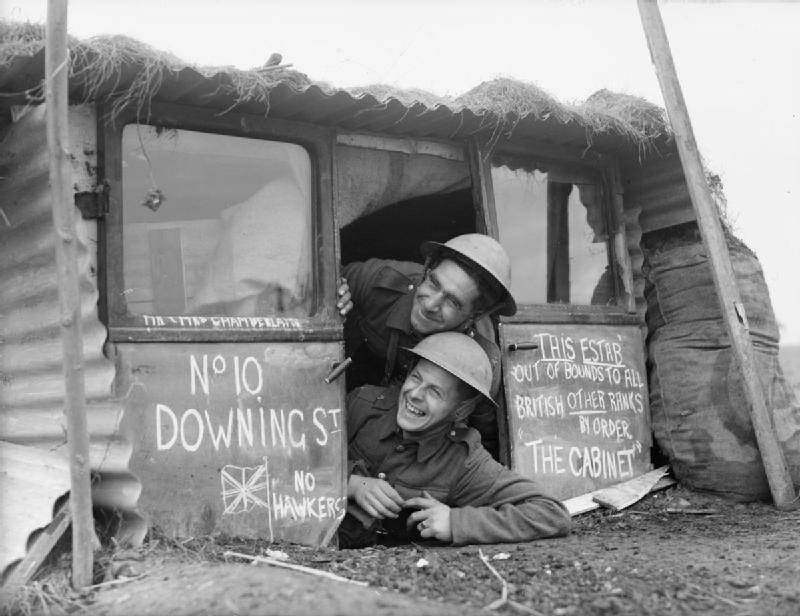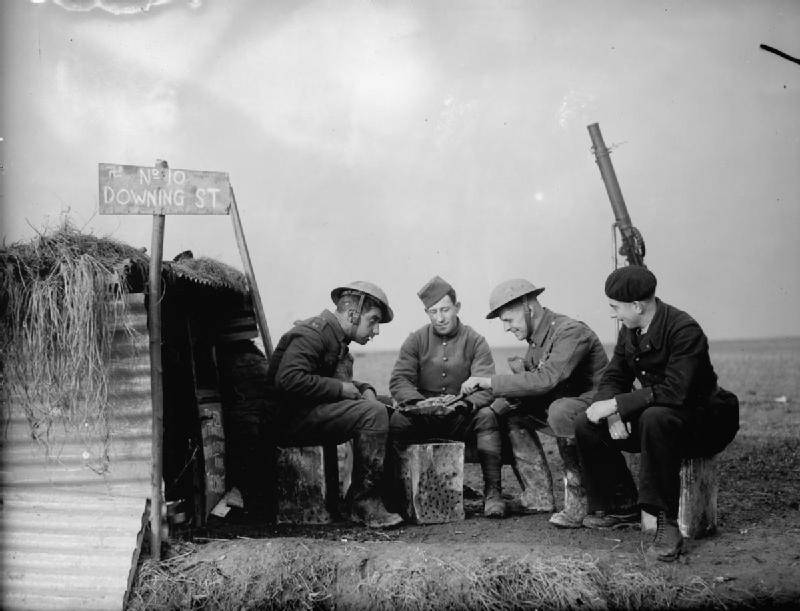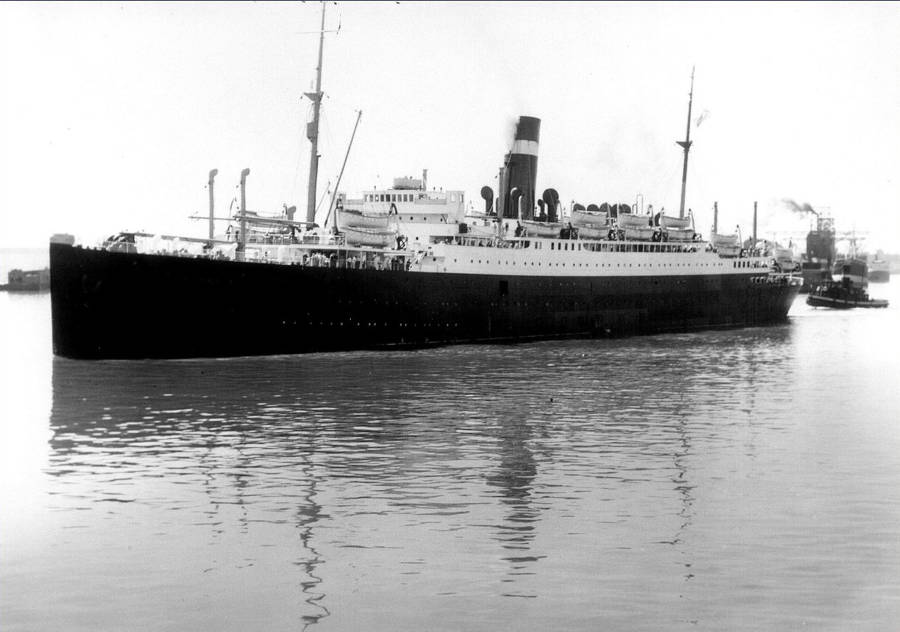How The “Phoney War” Early On In WWII Gave Germany The Advantage
Title : How The “Phoney War” Early On In WWII Gave Germany The Advantage
Link : How The “Phoney War” Early On In WWII Gave Germany The Advantage

Two soldiers of the British Army peer out from the entrance to their dugout, named ’10 Downing Street’, made from old car doors and corrugated iron, in France, Nov. 28, 1939.
Before WWII went into full swing, there was a brief period of silence known as The Phoney War in which the Germans took full advantage.
Before World War II evolved into the the deadliest war in history, soldiers puzzled over a short period of inactivity in the months leading up to 1940, which has become known as The Phoney War.
All Quiet On The Western Front
When Hitler invaded Poland in September 1939, Great Britain and France declared war on Nazi Germany and World War II officially began. However, all hell did not immediately break loose. In fact, from the fall of 1939 to the Spring of 1940, there were eight months of quiet when no land operations were undertaken on either side.
This period of time was dubbed the “Phoney War” by US Senator William Borah, who so astutely pointed out that “there is something phoney about this war” since although war had been declared, nothing had happened yet.
Hitler watching German soldiers marching into Poland, Sep. 1939.
As both sides took this period as an opportunity to test each other, Germany ultimately used the inactivity on behalf of the allied forces as a chance to strike without full retaliation and was able to gain an advantage.
There were some minor skirmishes along the French border, and in the fall the French army launched the Saar Offensive, in which they advanced over the border into the Rhine Valley, but then abruptly decided to change tactics. It’s speculated that France used this opportunity as a means of testing out German forces, ultimately choosing to take on a more defensive role.
Aftermath on behalf of the French from the Saar Offensive.
Through these first few months, it seemed all parties involved in the war were hesitant to make the first move, looking to take a defensive rather than offensive role. Germany, for one, hoped to convince Great Britain to agree to peace, and Great Britain held off on bombing attacks, afraid that any harm done to civilians would result in a counterattack.
An Unconventional Air Tactic
The British air force did briefly consider bombing the Black Forest or other industry targets, but it was decided that those were private property and should not be touched.
Great Britain did, however, show that they absolutely had the potential to drop devastation upon Germany by dropping propaganda leaflets onto German cities instead of bombs. Though the British intended this to be a kind of scare tactic, they wound up inadvertently benefiting Germany by showing them where they needed to improve their anti-aircraft barriers.

British Army and French Air Force personnel outside a dugout named ’10 Downing Street’ on the edge of an airfield, Nov. 28, 1939.
The lack of any typical wartime atrocity in major cities like London or Paris convinced some children that had been evacuated to return to their parents.
The Sea Was Not As Quiet As The Land
On Sept. 3, Germany’s U-30 submarine attacked the British passenger liner “Athenia,” killing 112 people. The Germans claimed that they believed there had been a bomb placed on board the ship, but after the attack, Hitler himself issued strict orders not to attack passenger boats.

The SS Athenia.
Just about two weeks later, the British suffered the loss of their first warship when a German U-29 sunk their aircraft carrier, the HMS Courageous. The following month they lost another battleship, the HMS Royal Oak when a German U-47 sunk the ship off the coast of Scotland. In retaliation, the Royal Navy attacked the German battleship Admiral Graf Spee, in December of 1940, and captured the tanker Altmark in the Battle of Narvik off the coast of Norway.
Operation Weserübung
The Phoney War Gets Real
The war began to pick up shortly following these sea attacks, in April of 1940, especially when Germany invaded Norway and Denmark. Although the Scandinavian countries had maintained their neutrality at the start of the war, the Germans wanted to secure the Norwegian Coast, as it was an advantageous place for them to launch U-boat attacks. The Germans subsequently spawned Operation Weserübung on Apr.9, and it took them only a month before they gained control of southern Norway.
Adolf Hitler visits Paris with architect Albert Speer (left) and artist Arno Breker (right), Jun. 23, 1940.
The Phoney War officially ended when the Germans invaded France in May of 1940. Allied forces were drawn from Norway to defend France, and Norway was unable to keep the Germans out by themselves and so surrendered on June 9th.
In the meantime, Winston Churchill replaced Neville Chamberlain as the British Prime Minister, and Churchill was a staunch opponent of the policy of appeasement, or avoiding outright conflict. He saw to it that the land battles had fully begun, and this strange period of limbo ended.
The continent of Europe would not be quiet again until September 1945, when World War II finally came to an end.
How The “Phoney War” Early On In WWII Gave Germany The Advantage
Enough news articles How The “Phoney War” Early On In WWII Gave Germany The Advantage this time, hopefully can benefit for you all. Well, see you in other article postings.
How The “Phoney War” Early On In WWII Gave Germany The Advantage
You are now reading the article How The “Phoney War” Early On In WWII Gave Germany The Advantage with the link address https://randomfindtruth.blogspot.com/2018/08/how-phoney-war-early-on-in-wwii-gave.html